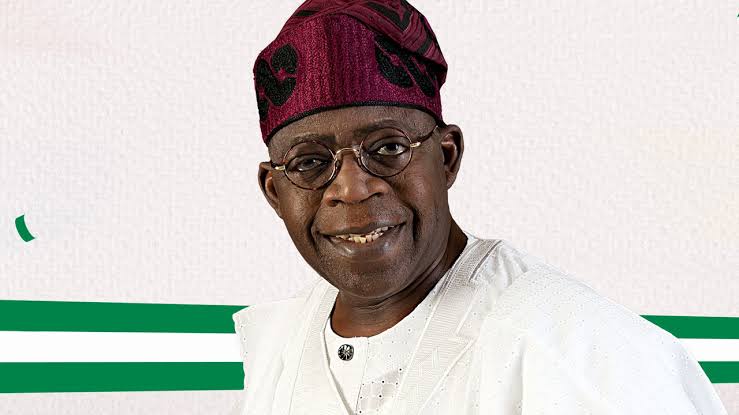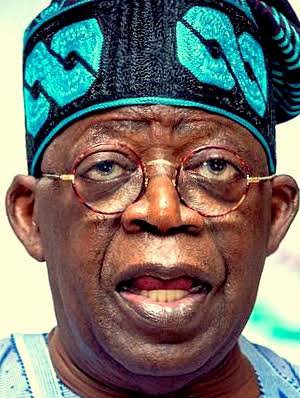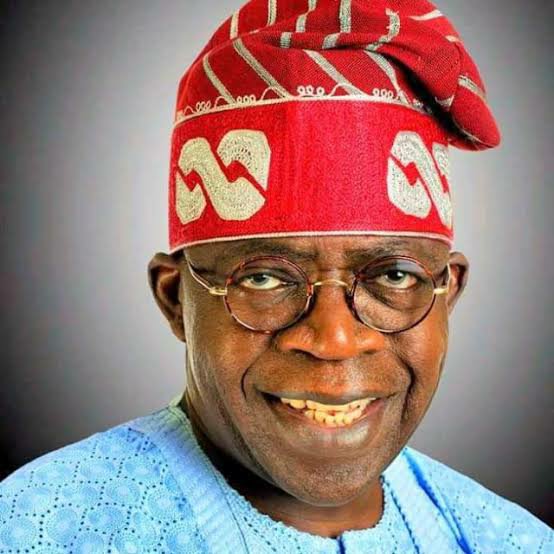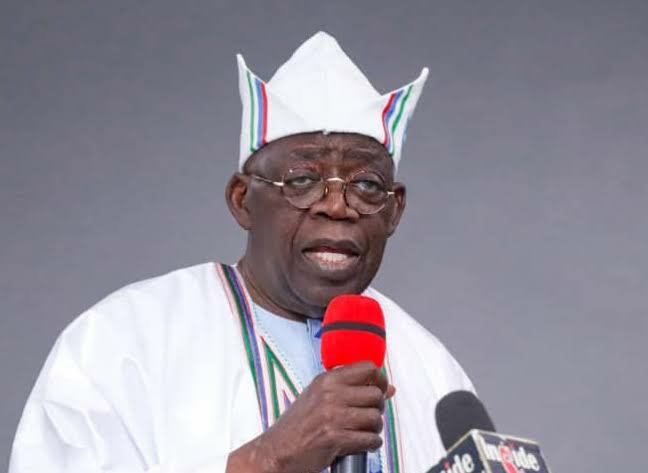Politics
Is Tinubu the right man for the job?

return to democracy in 1999. The former governor of the country’s commercial nerve-centre, Lagos State, he is a seasoned politician who has been a force on the Nigerian political scene for over three decades. But is he the leader that Nigeria craves, to sort out a long list of deficits? Profile by Ejiroghene Barrett, with additional input from Anver Versi.
The task before Bola Ahmed Tinubu is enormous. If all goes to schedule, incumbent President Muhammadu Buhari will officially hand over the instruments of office to him on 29 May. Tinubu will immediately be faced with several issues requiring adroit leadership: the responsibility of unifying a country that is fast giving in to its regional and religious fault lines, as the election results show; he will also need to find quick fixes for some constricting economic policies initiated by the outgoing Buhari government.
After 16 years as an opposition leader and almost eight years as national leader of the ruling All Progressives Congress (APC), Tinubu has finally achieved his life-long political ambition to occupy the Presidential seat, beating two other formidable contestants – a former Vice-President (Atiku Abubakar) and a former state governor (Peter Obi), after what has been described by observers as one of the toughest-fought races, with the most disparaging ad-hominem campaigns the country has ever witnessed.

Although opposition candidates have alleged irregularities in the conduct of the elections, it is unlikely – unless smoking gun evidence can be produced relatively quickly – that the results can be effectively challenged or overturned. Tinubu, according to sources close to him, is already working out the direction of his policies on many fronts – he wants to hit the ground running as soon as he is sworn in come May.
He will certainly be faced with a daunting to-do list. Is he the man to steer Africa’s most populous and most dynamic country, on many metrics, as it transitions to a new multi-polar world that is still a work in progress?
Bola Ahmed Tinubu has loomed large in Nigeria’s political circles for decades. He went to the US for his higher studies and obtained a degree in accountancy from Chicago State University in 1979. He worked for several US companies including Deloitte and Arthur Andersen before returning to Nigeria in 1983, when he joined Mobile Oil Nigeria and later rose to executive level.
He cut his political teeth when he was elected a senator representing Lagos West in the short-lived ‘Third Republic’ democratic transition in 1992. He became one of the most vocal opponents of Nigeria’s military dictatorship under Sani Abacha, who ruled from 1993 to 1998.
He was once forced out of the country by Abacha’s military regime and was an active member of the pro-democracy National Democratic Coalition (NADECO) in exile until he returned to be part of Nigeria’s new democratic dispensation in 1998.
He marks this struggle and its celebrated victory with an insignia on his signature hat – which he says is a broken shackle but bears resemblance to a horizontal figure of eight, that has become his most recognised symbol.
It was this struggle for the return of democratic governance, in which he locked horns with one of Nigeria’s most brutal regimes, and his successes as “the man who dared a General, Escaped a General, Conquered a General, Installed a General and has succeeded a General”, as one tweet sums up his many interactions with Nigeria’s former military rulers, that many believe makes him feel entitled to the Presidential seat.
Known popularly as Jagaban by supporters, a title he was given in one of Nigeria’s northern emirates, which loosely translates as ‘leader’, Tinubu has lived up to that moniker as it relates to his mastery of the Nigerian political craft.
He has honed this gift as a master strategist for over 32 years by building a solid political base, especially in his Southwest stronghold but also across the country.

As national leader of the ruling APC, he is a respected figure within the party and it is believed that his role as a powerful éminence grise figure working behind the scenes has been a major influence in shaping the ruling party’s operations over the years. He has been the key force behind the APC’s hold on power in the Southwest and has been very influential in the party’s internal affairs.
Dark side of the story
There is another side to his story, which became the focus of his opponents’ diatribe against him during the campaigns leading up to the elections, and has also become a major source of contention since.
Tinubu has a record of legal battles that relate to a US indictment on suspicions of possessing funds linked to the drug trade. He came to an agreement with the authorities but it involved the forfeiture of $460,000 of these funds.
Arguments over whether the funds were regarded as earnings from the drug trade or if the forfeiture translates as a conviction on drug charges have been the subject of an ongoing face-off between his supporters and critics.
There have been speculations about his health as well. The opposition made the most of all this during the election campaign when they labelled him ‘wobbly, wonky and narcotics devastated’, but none of the claims have been substantiated by medical reports.
Time for tough decisionsp
Tinubu appears unfazed by the challenges ahead, but there are no pretentions about the magnitude of the task before him. He has always pointed to his record as Lagos State governor between 1999 and 2007 as proof of his ability to tackle the similar challenges at national level.
His successes include his accomplishments in growing the state’s income through comprehensive reforms in revenue generation and the introduction of the Bus Rapid Transport system (BRT) that eased the traffic jams Lagos State was notorious for.
However, unlike his brief for Lagos, Tinubu has to draw up bigger plans for a nation of over 200m people with vastly contrasting demands.
For starters, his cabinet will have to reflect this diversity and serve new political interests that he may find hard to accommodate. He must also learn to work with a cabinet and staff not necessarily made up only of the political protégés he has been known to work with in the past. He will be faced with new challenges and the task may not be as easy as some of his admirers think.
The first signs of a conflict between his progressive ideals and Nigeria’s fiscal realities would be his insistence on the removal of the petrol subsidy that the country has maintained for many years.
Analysts say this decision may result in the cost of petrol spiralling beyond the reach of the average working Nigerian and the ripple effect on general living costs will be huge.
But the World Bank has made an $800m facility available to distribute cash to the most vulnerable in Nigeria as a palliative for the removal of the subsidy. The cash handout is expected to reach some 50m Nigerians.
Previous attempts to remove the subsidy led to such massive riots and demonstrations that the policy had to be withdrawn. It is unlikely that the measure, which is due to come into force in June, will pass without public protest. However, the expectation is that it will free up huge funds for important social and infrastructural projects that will cushion the effects of the expected price hikes.
Among his policies, Tinubu’s proposal to introduce a revolutionary credit scheme that would increase the purchasing power of Nigerians seems to be one of the most keenly anticipated.
The real estate sector appears to be the main focus of this policy objective. He says the country’s mortgage institutions “need to be revised and better-financed so they can provide affordable residential mortgages to young people just entering the workforce”.
This policy proposal has attracted a lot of attention, considering that the estimated housing deficit in Nigeria currently stands at 28m and records in 2022 show that the country’s homeless population of around 24m is growing at a disturbing rate.
A review of the country’s fiscal policies, which have been part of the demands for reforms, will be a major part of Tinubu’s agenda, and he also says his government “will not tie our budget to dollar-denominated oil revenues” but rather tie it to “the projected spending levels that will push the annual growth rate above 10%, and this will inadvertently reduce the unemployment rate and the economy will be doubled in seven years”.
He talks of his government’s intention to relax the restrictions on import and foreign exchange, which he said has increased smuggling and round-tripping that has stifled the economy.
He also intends to move to a unified exchange rate regime. Some experts say this will drastically reduce the difference between the official and black market rates that have had a serious impact on the current value of the naira.
On agriculture, Tinubu speaks of prioritising the growth of that sector by reintroducing commodity boards which serve to provide a cushion for farmers of cash crops from the downsides of a slump in prices.

These boards have been beneficial in sustaining cocoa production in Côte d’Ivoire and Ghana; countries that currently produce ten and three times the volume of Nigeria’s cocoa respectively. He says his proposal would include empowering commodity exchanges where farmers can get some assurances of future prices and also get forward contracts.
Tinubu is also considered the most plausible person to initiate important constitutional reforms that would meet widespread demands. The Nigerian energy sector is one area that urgently needs this attention.
He has been given a head start by Buhari’s recent signing of 16 Constitution Amendment Bills into law, which include allowing states in the country to license, generate, transmit, and distribute electricity. It is reforms like these that many say would cut through the tangle of red tape that has stifled investments over the years.
Reverse image of ‘Absentee President’
He will also have to reverse the image of the ‘Absentee President’ that dogged Buhari, who spent considerable chunks of time out of office as well as the country as he received treatment over lengthy periods in foreign hospitals.
Tinubu will be required to be seen and engaged rather than working by ‘remote control’, as some have charged Buhari with doing. He will have to take a firm grip of the security situation, which is becoming worse as the frequent deadly attacks by jihadist groups are mirrored by increasing bloodshed during deadly battles between farmers and Fulani cattle herders. The latest outrage took place in April in Benue State, when gunmen believed to be herders shot at least 46 farmers.
As climate change wreaks further havoc, greatly diminishing water sources and grazing lands, the struggle to survive between farmers and traditional herders is intensifying and causing mayhem in ever-widening circles.
Tinubu will need both muscle to show the government is engaged and serious, as well as diplomacy, to avoid the sort of confrontations that occurred during the pandemic when police overreach caused mass protests and demonstrations.
Even in dealing with radicalised groups, he will be wise to study the latest report on the subject from UNHCR, which has interviewed thousands of former militants on the causes of their radicalisation. Security services brutality has been cited as one of the major causes of people joining extremist.
He and his cabinet will need to become more engaged in the wider global issues such as climate change and the severe impact it is having on Nigeria as well as the rest of Africa. A good deal of the unrest and extremism is caused by struggles over diminishing resources and the consequent lack of income or meaningful work. While many individual Nigerians as well as organisations have been quite vocal on these issues, the government has been more reactive than committed.
Nigeria can also consider itself as perhaps the intellectual and cultural capital of Africa, producing a small army of writers, thinkers, film-makers, outstanding journalists and singers and musicians but they seem to inhabit a very different universe from the political and social mainstream. The majority find their interactive audiences not only in the diaspora but increasingly, internationally.
It is time that Nigeria’s rich vein of intellectual wealth was married to governance to revitalise the national spirit, raise discussion and debate to a higher level and unleash the creative juices latent in all societies and without which no society has been able to break free from the status quo and progress.
Is Tinubu the man who can set into motion the processes that will lead to the eventual realisation of these essential goals or will he be mired in base political infighting, gesture politics and divvying up the spoils of office? Nigeria and the rest of Africa will watch his performance with the keenest of interest because where Nigeria leads, others often follow.
-

 Business4 days ago
Business4 days agoBillionaire Femi Otedola, Zenon Petroleum Sue Zenith Bank Over Illegal Acquisition Of Shares; Demand Over N100bn As Relief
-

 News5 days ago
News5 days agoOba of Benin: Edo group rejects Gov Obaseki’s peace move, warns against sacrilege
-

 News3 days ago
News3 days agoAkpumuama Community gets New Town Hall from Hon. Kesiye Taribo
-

 News5 days ago
News5 days agoPanic As Nigerian Army Personnel Storm Streets In Abia State Over Killing Of Colleague By Assailants
-

 Sports3 days ago
Sports3 days ago2024 AFCON: Nigeria Thrash Burundi 11-0, Qualify For Quarterfinal
-

 Politics3 days ago
Politics3 days agoSunny-Goli insists on EFCC probe of Wabote-led NCDMB, denies plot to stage protest.
-

 Politics5 days ago
Politics5 days agoINEC Acknowledges Letter From Pro-Wike Speaker, Hon Martin’s Amarwhule
-

 Politics5 days ago
Politics5 days agoThree (3) Bayelsa APC Membership Slot on the 555 Tertiary Institutions Board Appointments




